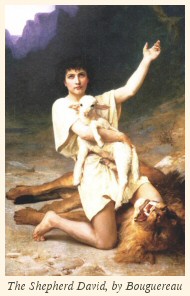we'll view a clip from The King and I: for a different "branch" --or is it?--
of the evolutionary tree climbed by Uncle Tom's Children.
 |  |
 |  |

 Pin Things Down with Concrete Nouns |
 "he hadn't really seen enough specimens to generalize" |


 James Baldwin's critique of Uncle Tom's Cabin was centered on its use of "types," which "bind," which "deny"--"in its insistence that it is his categorization alone which is real." |
 Jane Tompkins' celebration of the novel took precisely the opposite perspective: she also read all the characters as types, but affirmed Stowe for enlarging the scope of from (insignificant?) individual particularity to the universal-and-archetypal: |





| reason | emotion |
| free | enslaved |
| white | black |
| male | female |
| North | South |
| existential | sentimental |
| doubting | believing |
| skeptical | faithful |
| Alfred | St. Clare |
| Baldwin | Tompkins |
 |
 |

 "Talk to the Hand," @ Hi-ReS! Feed |  From Bladematrix-Medieval Weapons |
